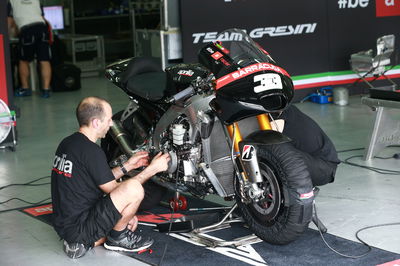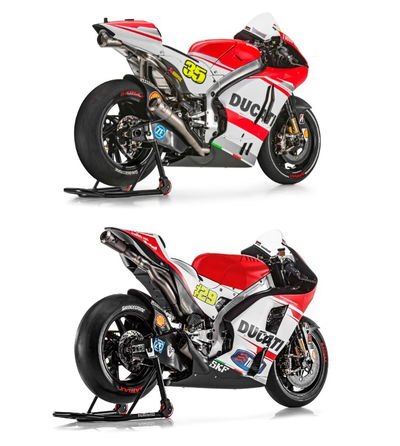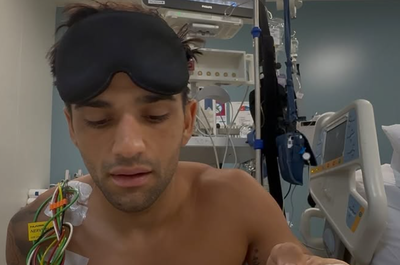Engine freeze exemption 'clever compromise'

Aprilia's Romano Albesiano believes allowing some MotoGP factories to be exempt from the in-season engine development freeze is a 'clever compromise' for 2016.
Next year will see the introduction of a compulsory single ECU, washing away the present Open and Factory classes in the process. However some Open-style benefits will continue for new manufacturers or those yet to achieve a certain number of podiums.
The exact benefits and results are still to be decided.
MotoGP's Director of Technology, Corrado Cecchinelli, outlined more race fuel, more engine changes and an exemption from the development freeze as a possibility for such manufacturers.
That would be similar to the current Open concessions given to Factory entries from Ducati, Aprilia and Suzuki which receive extra fuel, engines, a softer rear tyre, less testing restrictions and no engine freeze.
However, as Cecchinelli suspected, the debate within the manufacturers' association (MSMA) is only on the number of engines and an exemption from the development freeze.
"The discussion now is not regards [different] fuel or tyres for 2016, it is just about the number of engines and the possibility of making development on engines during the season," Albesiano told Crash.net.
"I agree with this [engine freeze exemption] because the most delicate and expensive part on the technical side is the engine. So if you are in trouble with the engine and you have an engine freeze, you cannot go anywhere.
"Removing the freeze gives you a chance to work, to test and to improve yourself. I think it's a clever compromise. I think this will be the only help for newcomers or those that haven't had top results in recent years."
Aprilia and Suzuki - returning to MotoGP this season - are expected to be the only manufacturers to receive the exemption, followed by KTM on its debut the following season.
Honda and Yamaha won't be eligible, while the improving Ducati team is also expected to exceed the results required.
Ducati cited the engine freeze as the main reason for attempting to switch to the Open class at the start of last year, which prompted the concession package for new or uncompetitive factories.
Meanwhile, asked if the single ECU is a good move for the sport and if electronics are too expensive, Albesiano smiled:
"I think riders are expensive! And the more you cut the wings of the engineers, the more important the riders will become and therefore more expensive. Maybe you have a genius engineer who costs you $60,000 per year. He makes a difference and you can win a race. Otherwise you have to hire a guy [rider] who costs you $10 million to win a race.
"I think the single ECU is a good move in order to balance the competition and reduce the cost of the electronics themselves. On the other side you have this kind of problem. Because if you want to win - it is not our case in the first years for sure - you have to pay a lot of money for a rider.
"I would like it if engineers are more highly paid. Like in Formula One!"












